The President of the United States has apologised to Islam for the film. In Australia some politicians have come out saying that riots by Muslims in response to the film have exposed a 'downside' of multiculturalism, but they seem mute on the contradictions between fighting oil wars in Islamic countries and causing displacement that creates refugees and immigrants seeking homes here. I have received correspondence highlighting that the ability to express views in art and media is preferable to expressing those views via war and that non-censorship is a Western value worth defending. I agree. Reacting to a Muslim demonstrator's sign calling for beheading of critics of Islam, Australian MP, Kelvin Thomson, made a speech in parliament declaring that Australians, including those of migrant origin, are expected to uphold all laws in this country, even those they disagree with. He meant laws against inciting violence.
Muslim reactions
Despite the rightfulness of the need to uphold the law and avoid violence, I can understand why some Muslims are very insulted. Australians are poorly educated in history, or more might be aware of the context of current military interventions and a history of western interference beginning with colonial takeovers in the late 19th century and the fostering of worse and worse governments by British, US, French and other colonial and corporate forces. All countries become basket cases after colonisation, some sooner rather than later. Australia is on the way. In the mean time, making 'the enemy' look ridiculous dehumanises them and makes it easier for them to dehumanise Westerners. Dehumanising by both sides makes war seem excusable, even irresistable, to each side.
Although I have heard the argument that Christians do not riot violently in the street every time a work comes out making fun of Christianity (Life of Brian, Piss Christ etc), I think that maybe they would if Muslims rolled into Western states in tanks, put us under curfew, told us how to run our countries and went about privatising our government oil companies. In fact, what the foreign Christian-and secular-backed western governments are doing to the Islamic countries is a hell of a lot nastier than rioting in the streets. [2]
The film is a symbol - not the main game
Because of these realities, I am reluctant to publish articles that unilaterally mock Muslims who reacted furiously to the film in question, without also mocking the hypocrisy of non-Muslim regimes which create refugees in one place and take them in for safety in another, whilst pushing commercial interests as if they were democracy. There is more to this than a film. The film is just a symbol, but wars are actually in progress and people in the Middle East are terrified, as we all should be. I also don't think it achieves anything for ants to stir up other ants' nests with a stick, especially when Russia and China are the traditional lords of the region and the angry ants are sitting on most of the world's remaining oil reserves.
How did we get to here in Australia and where is the anti-war movement when you need them?
On discussion pages attached to recent SBS programs about the conditions that create asylum seekers, (Re "Go back to where you came from" - what about the NON-asylum seekers?)" someone observed that we have very strong pro-asylum seeker and pro-refugee protests in Australia these days, but almost none against the wars we are participating in, even though those wars coincide with exoduses of people claiming persecution. The comment pointed out that significant refugee streams from such situations consist of people who worked with the invading armies, noting that, in the asylum seeker film, one man stated that he had fought on our side: "I helped you," and presented this as an argument for his being accepted as an asylum seeker. The comment thus raised a number of controversial issues not often discussed in Australia and seems to have been removed.
Wars and invasions present citizens or inhabitants in the embattled and invaded country with invidious 'choices' which notably include fighting the invaders or working for them. See Greg Muttitt's Fuel on the fire, Bodley Head, London, 2011, for a brilliant history of oil and politics in Iraq. In a country where most of the population usually have not agreed to have their government taken over by foreigners, anyone apparently working willingly with the invaders, whether or not the invaders see themselves as peace-makers, risks being identified by their compatriots as collaborators with the enemy.[3] For this reason alone a person working with foreigners will incur the wrath of their compatriots. Since 'our' armies [i.e. allies of Australia] and interventions are currently always purportedly in support of minority dissidents and revolutionary armies, perhaps anyone who can show they fought on Australia's side tends to have a well-founded fear of persecution.
We never address these illogicalities, these contradictions in our asylum seeker and refugee discussions, where at least some of the people seeking asylum here may be considered heroes by Australians but traitors by their own countrymen. What sort of responsibility do we have for nationals who took positions as salaried workers or occasional assistants for foreign officials in an occupation? Is it not more likely that people who are already on the outer in their own country will take their chances with the occupying army? In a country where food and shelter are luxuries, working for the occupying forces may be the only way of surviving at any particular time, and resisting those forces may verge on suicidal. It may also be necessary to work with the occupying forces in order to save what is left of the country, even though the occupying forces initiated the destruction. This situation is again described superbly in Greg Muttitt's Fuel on the fire, mentioned above.
Refugees from Algerian and Vietnamese wars
When Australian Prime Minister, Malcolm Fraser, brought in Vietnamese refugees, many of these favoured the right wing government and fought against the nationalist wars in Vietnam. Years later the Vietnamese war is largely seen as a war for independence from colonial rule by the French, the Japanese, the British, the French again, then the United States. The Communist Party at the time was probably the largest of several political parties involved in the resistance. This observation should not be taken to label all Australians of Vietnamese origin here as right-wing, but the inference cannot be avoided that people who sided with Australia's allies during the war in Vietnam were not on the side that ultimately won in a war where Australia's participation is now widely seen as unjust.[3]
In the Algerian wars of independence against France the Harkis is the term given to those Algerians (mostly muslims) who were working for, either covertly or overtly, the French colonial government and who had an interest in defending that status quo. After the French withdrew - nearly one million of them, many who had been born and bred in Algeria going to live in France - the Harkis faced reprisals from their countrymen, who saw them as traitors. Many Harkis sought asylum in France, but the French government avoided what was seen by many as a responsibility to look after these people.
Where do militant religious sects fit in?
Where do militant religious sects, like the Taliban, or the less 'extreme' Hezbollah fit in? There are two ways that such sects serve a practical need. One is that they provide a cover for political action, organisation and resistance in countries where overt political meetings attract execution (both from national governments and from occupying forces). Another reason is that, in countries disorganised by war and occupation, they often retain some organising capability to meet local needs for food distribution, care for the sick, distribution of inheritances, care of orphans and widows. They also provide work, food and shelter. Some alternatives may present in the form of foreign aid organisations, including non-Muslim religious missionaries as well as the Red Cross or other non-sectarian samaritans. Seeking help from these non-local or alternative organisations may also carry the stigma of perceived collaboration with enemies, outsiders or poorly viewed minorities, and generally weakening local or national solidarity. Therefore seeking help from local organisations is likely to be safer. In Muslim countries, Western economic cultural practices which include banks that lend money with interest, buying, selling and consuming alcohol and incorporation of national assets and resources for private profit all run counter to religious and social philosophy. Siding with forces that market these practices is to accept the unacceptable and undermine your peoples' economic interests. Muslims share these values with many Westerners who do not, however, have the support of their social and religious communities or the local organisation to help them fight these economic ills.

Australia's silent anti-war movement, vocal pro-immigration lobby - what's the connection?
As well as Australia having a lot of protest about the need to take in asylum seekers and refugees, but little or no recent protest against involvement in wars in their countries of origin, Australia also lacks concerted protest against an undemocratic and unwanted policy of high immigration. Part of the reason for this is probably that high immigration is dishonestly marketed by government and commercial growth lobbyists as if it consisted largely of refugees and asylum seekers, although the vast majority of immigrants to Australia are wealthy economic migrants. You would think that this situation should still lead to protests against our involvement in unjust wars, but somehow it does not. One explanation could be that our mass media wants to promote both war and mass migration and therefore suppresses publication of contrary views, giving us the false impression that no-one cares about the other side.
Divide, conquer and grow
Another reason that protest is muted seems to be the doctrine of multiculturalism. This ideology is used covertly to engineer massive population growth by growing populations of different ethnic identities, at the same time dividing and conquering democratic input about high immigration. When people protest about the increase in immigration numbers causing inflation, and pressure on the environment and services, they are accused of attacking the ethnicity of those immigrants. Australian and state governments generally side-step the numbers issue and divert talk to how they welcome people from different ethnicities and races, implying that complaints about high immigration are really only about shifts in Australia's cultural center of gravity. In fact the official encouragement of multiple separate ethnic communities in Australia is obviously a source of concern to Australians of all origins. It seems that most people have a sense that after "Divide" comes "Conquer," and Australians feel they are being divided and losing their standard of living, quality of life and security. Housing inflation causing new levels of debt and homelessness is the most obvious example of the cost of population growth.
Look out for the enemy
Along with "Divide and Conquer" there is the policy of "Look out for the enemy". The enemy at the moment is identified as Islam. Since 9-11 the presentation of this old traditional enemy of Europe as an imminent threat has been ramped up to fever pitch and offered as a reason to enter Islamic countries - even where they were secular states - and endlessly seek weapons of mass destruction even after it has been shown there were none. At home in the Anglophone and other European states, harsh new anti-democratic policies have been brought in to counter threats of Islamic terrorism, making it possible to accuse people of terrorism without giving public proof. The wars for 'democracy' in the Middle East are eroding democracy in the West. At the same time new streams of Islamic immigrants (and refugees) have been welcomed to the very states making war on their homes.
Saudi Arabia - curiously part of the Western club
One Islamic state stands out for its exemption from foreign intervention and its collusion with the allies against its Islamic neighbours. That is Saudi Arabia. Saudi royal family members are legion. Jet-setting globe-trotters, they are members of an international power elite, founded on oil-wells. At the same time they are among the most repressive governments in the world, with astounding records of human rights abuse and slavery, crowned by their nation-wide enchattlement of women. These representatives of Islam seem to be the only Middle Eastern Islamic government friends of European governments and immune to revolution or NATO intervention.
Confusion from West to East
Should we be surprised that there is now confusion all round, with many Westerners convinced that Islam is out to destroy their way of life, and many Muslims convinced that Westernism is out to destroy their way of life? If you look at what is happening in the world today, the evidence seems to be weighted in favour of the Muslim perception, with a history going back to the 19th century. It is hard to say that Islam is persecuting the West when Afghanistan, Iraq, Libya lie in pieces after foreign 'intervention' and warships from more than 25 countries, including the United States, Britain, France, Saudi Arabia and the UAE, are together launching a military exercise in the Straits of Hormuz as I write.
In this context, riots in response to the release of a film, Innocence of Muslims, that seems extremely inflammatory and insulting to Islam and its popularisation by US Christian militants, seem predictable. I have not seen most of the film, but I have seen several minutes on you-tube and I can see what the Muslims are angry about. It may well be that the film makes justifiable criticisms of Islamic culture and beliefs, but, as Jon Faine recently said, "Why poke a stick in an anthill?" Under such circumstances, the launch of Innocence of Muslims looks suspiciously like a politically detonating device, so I am glad that Obama has apologised.
Real political pressures created by high immigration and wars to fuel big populations
The fact remains that, in Australia, as in Canada, the United States and Britain, high immigration and overseas wars are creating political pressures. The power and commercial elites responsible for the high immigration that is depriving incumbent populations of their rights are the same people who are pushing in the Middle East for control of oil production and infrastructure roll-out so as to be able to grow corporate profits and continue their population growth and economic 'growth' agendas at home. Although democracy is a word so often brandished in the Middle East by Western forces, what is more often meant is capitalism, imposed by force, incurring many deaths. Iraq is a sad example of this - see Oil on the Fire and The Shock Doctrine and Saving the Baghdad Zoo: A True Story of Hope and Heroes. Libya's atomization through foreign intervention, purportedly to bring democracy, is a more recent example of the same kind of activity. We are now watching on the world theatre, with our bags of pop-corn, the purported democratization forces gather in the Bay of Hormuz, ready to 'reform'.
Grass roots democracy on the internet - not so easy to keep us in the dark now
But the internet has broadened the information we can get about wars now. Syrians who don't like the war there are managing to get its own side out to the world. Syrian Girl Partisan is a notable example, and she has broadened her commentary and explanations now to include an interpretation of what happened in Libya on "US Ambassador Lynched like Gaddafi And Youtube Censors." as well as the later film linked a the top of this article.
Several Egyptian demonstrators have confessed that they were paid to protest about the Innocence of Muslims near the US Embassy in Cairo, the Middle East News Agency cites Prime Minister Hesham Kandil as saying. (Source: RT News Anti-US riots grip Muslim world," http://rt.com/news/anti-american-protests-live-updates-053/
On 16 September 2012, in an email, Former US Congresswoman, Cynthia McKinney wrote:
"U.S. bombs continue to fall in Somalia, Pakistan, Yemen, and now it is reported that the US drones are flying all over Libya and are bombing from Benghazi to Tripoli. Reports from Libya today are that foreign oil companies have evacuated their employees and stopped operations and that U.S. troops are in various parts of the country.
Tragedy continues to unfold in Libya. [...]"
McKinney: Questions on killings in Libya
"Every loss of life is tragic and that is why I oppose the current US policy of killing. The US is currently regularly killing people in Asia and in Africa. Taken to its extreme, the Obama Administration even claims authority to kill US citizens on US soil!
The unfolding situation in Libya is troubling, not only for the bloodletting and carnage that is taking place, but also because of the murkiness that surrounds the events themselves. I have several observations and a few questions:
1. The scenario of an anti-Islamic hate film triggering a protest that leads to violence replicates the events that took place in the initial uprising in Benghazi in early 2011. At that time, the annual protest in Benghazi against the anti-Islamic Danish cartoons was taking place. The march was infiltrated by persons with an agenda, who used the event as an opportunity to seize military equipment from the Jamahiriya government and use it against the Libyan population. If it is known that Muslim protest on the streets can be touched off by attacking the Qur'an, then once again parties with another agenda can spark then infiltrate that protest and use it as cover. It worked before to launch an entire chain of events in Libya, why not again? The reports on who created and financed the film are very muddled.
2. Today, the Libyan/Al Qaeda/US/NATO/Israel government is bombing Sabha and the black Libyan Toubu people who constitute a stronghold of the vibrant Libyan resistance. Interestingly, no R2P is being invoked to do so here, but could this be covertly directed against the Green Resistance (self-described as well financed and ready to fight to the last bullet, the last man, the last dollar)?
3. A video is available of the 12 September attack on the US convoy that killed 2 US citizens and injured 14, indicating Day Two of an uprising/action.
4. There are photos published today of US special ops forces landing in Libya. If true, is this to counter the Green Resistance, or springboard into Egypt if need be, or worse? Foreign troops are in Libya already securing oil platforms. What might this have to do with Iran? Libyan oil was theorized to ensure oil to Europe in the case of a shutoff from Iran. Does this have anything to do with the impending Netanyahu visit to the US?"
NOTES
[1] Excerpt from http://en.wikipedia.org/wiki/Innocence_of_Muslims" describes known history of film production.
"Production
The cast and crew have publicly stated that they were deceived about the purpose and content of the film. In a statement obtained by CNN, the film's 80 cast and crew members disavowed the film, saying: "The entire cast and crew are extremely upset and feel taken advantage of by the producer. We are 100% not behind this film and were grossly misled about its intent and purpose." It further explained, "We are shocked by the drastic re-writes of the script and lies that were told to all involved. We are deeply saddened by the tragedies that have occurred." Cindy Lee Garcia, who played the mother of Muhammad's bride-to-be, said the script was for a movie about life in Egypt 2,000 years ago, called Desert Warrior (and possibly also Desert Storm), and that the character "Muhammad" was referred to as "Master George" on set. According to Garcia, "Bacile" claimed to be an Israeli real estate mogul. Later, however, he told her he was Egyptian and she heard him speaking in Arabic with other men on set. Garcia stated it makes her "sick" that she was involved in the film and that she is considering legal action against "Bacile." Sarah Abdurrahman, a producer for WNYC's On the Media program, watched the trailer and concluded that all of the religious references were overdubbed after filming.[30] The independent film was directed by a person first identified in casting calls as Alan Roberts, whose original cut did not include references to Muhammad or Islam.
In September 2012, "Sam Bacile" was initially described as a 56-year-old (52-year-old according to the Wall Street Journal) real estate developer from Israel who spoke by phone with the Associated Press. Israeli authorities found no sign of him being an Israeli citizen, and there was no indication of a 'Sam Bacile' around 50 years old living in California, having a real estate license or participating in Hollywood filmmaking. Though "Bacile" claimed the film had been made for $5 million from more than 100 Jewish donors, Hollywood Reporter described the film's appearance as unprofessional, bringing this claim into doubt. According to a man who identified himself to the Wall Street Journal as Bacile, the film was produced to call attention to what he called the "hypocrisies" of Islam.[40] After further reports suggested that Bacile was neither Israeli nor Jewish, Rabbi Abraham Cooper condemned initial reports that Bacile was Jewish and the movie was financed by "100 Jewish donors," saying that whoever told this to the Associated Press committed a blood libel and said that the media did not thoroughly research this claim. Cooper said that to "catapult what might be a nonexistent Jewish element could lead to violence against Jews," and called on the media to learn from this incident, while investigating who exactly created the film.
Later, "Sam Bacile" was identified as Nakoula Basseley Nakoula, a Coptic Christian immigrant from Egypt living in Cerritos, California, near Los Angeles. In 2010, Nakoula, who had served prison time on a 1990s conviction for manufacturing methamphetamine, pleaded no contest to bank fraud and was sentenced to 21 months in prison; he was released on probation from prison in June 2011. Authorities said Nakoula told the police that he had written the movie's script while in prison and, together with his son, Abanob Basseley, raised between $50,000 and $60,000 from his wife's family in Egypt to finance the film. According to CNN, the FBI contacted him because of the potential for threats, but he is not under investigation by the FBI. However, federal officials are investigating whether Nakoula violated the terms of his probation, which barred him from using the Internet for five years. According to The Smoking Gun, Nakoula had planned to produce the film as early as May 2009, when he first took out ads for crew members. However, he was arrested on the bank fraud charges a month later; after his arrest, Nakoula cooperated with prosecution to obtain a reduced sentence.
American non-profit Media for Christ obtained film permits to shoot the movie in August 2011, and Nakoula provided his home as a set and paid the actors, according to government officials and those involved in the production. Media for Christ president Joseph Nassralla Abdelmasih reportedly went into hiding after the violent response to the film.
Steve Klein, a Vietnam veteran who has been active in opposing Islam and has been associated with paramilitary style "hate groups" at his church according to the Southern Poverty Law Center, was asked by Nakoula to be the spokesman for the film. The movie's self-identified consultant, Klein reportedly told Nakoula: "You're going to be the next Theo van Gogh." Klein later told journalist Jeffrey Goldberg that "Bacile" is not a real person and is neither Israeli nor Jewish, as has been reported, and that the name is a pseudonym for about 15 Copts and Evangelical Christians from Syria, Turkey, Pakistan and Egypt; Goldberg questioned the reliability of Klein. Klein rejected any blame for the violent reaction to the movie, saying, "Do I feel guilty that these people were incited? Guess what? I didn't incite them. They're pre-incited, they're pre-programmed to do this."
Release
The film's screening as "Innocence of Bn Laden" was advertised in the "Arab World newspaper" during the months of both May and June. The ad cost $300 to run three times in the paper and was paid by an individual identified only as "Joseph". The ads were noted by the Anti-Defamation League. The Islamic affairs director stated: "When we saw the advertisement in the paper, we were interested in knowing if it was some kind of pro-jihadist movie." Brian Donnelly, a guide for a Los Angeles based tour of famous crime scenes, noticed the poster advertising at the Vine Theatre. "I didn't know if it was a good thing or a bad thing. We didn't know what it was about because we can't read Arabic. The earlier version of the film was screened once at the Vine Theatre in Hollywood California of June 23, 2012 to an audience of only ten people. The film had no subtitles and was presented in English. An employee of the theatre stated: “The film we screened was titled ‘The Innocence of Bin Laden’,” and added that it was a “small viewing.”
A second screening was planned for June 30, 2012. A local Hollywood blogger, John Walsh attended a June 29 Los Angeles City Council meeting where he raised his concerns about the film's screening. “There is an alarming event occurring in Hollywood on Saturday,” he stated. “A group has rented the Vine Street theater to show a video entitled ‘Innocence of Bin Laden.’ We have no idea what this group is.” The blog site reported that the June 30 screening had been canceled. A Current TV producer photographed the poster while it was being displayed at the theatre as advertising to later discuss on the program "The Young Turks." According to one attendee, "the acting was of the worst caliber," and he "had no inkling that that movie was anti-Islamic and did not recall the movie referencing the prophet Mohammad," but he did not see the whole film.
It was reported on September 14, 2012, that a planned screening by a Hindu organization in Toronto will be coupled with "snippets from other movies that are offensive to Christians and Hindus." Because of security concerns no public venue has been willing to show the film; it will be shown in private for a small audience of 200 people. Siobhán Dowling of the The Guardian reported that "a far-right Islamophobic group in Germany", The Pro Deutschland Citizens' Movement, has uploaded the trailer on their own website and wants to show the entire film but authorities are attempting to prevent it.
Two clips were posted on YouTube on July 1 (13'02", title "The Real Life of Muhammad", comment "Part of the movie, "Life of Muhammad"..... ????? ?? ???? ???? ????") and 2nd (13'50", title "Muhammad Movie Trailer", comment "????? ??????? ??????") by user "sam bacile". By September, the film had been dubbed into Arabic and was brought to the attention of the Arabic-speaking world by Coptic blogger Morris Sadek, whose Egyptian citizenship had been revoked for promoting calls for an attack on Egypt. A two-minute excerpt dubbed in Arabic was broadcast on September 8 by Sheikh Khalad Abdalla[65] on Al-Nas, an Egyptian television station, On September 11, "Sam Bacile" YouTube account commented in Egyptian Arabic on a video from Al-Nahar TV uploaded 2 days earlier "??????? ?? ???? ?????? 100%" which means: "Idiots, this is an American film 100%".
The film was supported by pastor Terry Jones, whose burning of copies of the Quran previously led to deadly riots around the world. On September 11, 2012, Jones said that he planned to show a 13-minute trailer that night at his church the Dove World Outreach Center in Gainesville, Florida. Jones said in a statement that "it is an American production, not designed to attack Muslims but to show the destructive ideology of Islam. The movie further reveals in a satirical fashion the life of Muhammad."
[2] I realise that our governments are currently privatising our resources, encouraging overpopulation and making harsh laws, but so far the Australian government has not taken up arms against citizens, nor have the foreign corporate entities that have taken over Australian resources and assets - yet.
[3] An unusual source documenting the problems of survival in an occupied capital it the remarkable book by Babylon's Ark by authors Lawrence Anthony and Graham Spence
"Most of the Iraqi zoo staff who walked to and from work braved a daily gauntlet of bullets, looters, and murderous fedayeen [see definition end paragraph] keen to slit the throats of anyone associating with foreigners. Despite being senior-ranking veterinarians, Dr. Adel and Dr. Husham also trekked the hazardous miles from their homes, taking the same chances as the humblest laborer. We never knew who would pitch up each morning, and we never blamed those who deemed it too dangerous to make it that day." Anthony, Lawrence; Spence, Graham (2007-03-06). Babylon's Ark: The Incredible Wartime Rescue of the Baghdad Zoo (Kindle Locations 1932-1936). Macmillan. Kindle Edition. " "Fedayeen": The Fedayeen was first created by an Iranian from Qom named Hassan-i-Sabbah, who held the main headquarters in Alamut-- modern day Qazvin, Iran. Fedayeen are any of various groups of people known to be volunteers, not connected to an organized government or military, in the Near East. They are usually deployed for a cause where the government has been viewed as failed or non-existent. They are associated with the role of resistance against occupation or tyranny. The name "fedayeen" is used to refer to armed struggle against any form of enslavement with actions based on resistance." Source: http://en.wikipedia.org/wiki/Fedayeen
[3] There is also a view that under the Fraser government they were encouraged to weaken the Australian union movement, notably the Australian Postal and Telecommunications Union in Victoria.
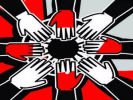 "Sweden has failed to integrate the vast numbers of immigrants it has taken in over the past two decades, leading to parallel societies and gang violence, Prime Minister Magdalena Andersson said on Thursday, as she launched a series of initiatives to combat organised crime." Australia, however, often claims that it is a multicultural success story.
"Sweden has failed to integrate the vast numbers of immigrants it has taken in over the past two decades, leading to parallel societies and gang violence, Prime Minister Magdalena Andersson said on Thursday, as she launched a series of initiatives to combat organised crime." Australia, however, often claims that it is a multicultural success story.
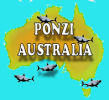 Innes Willox, the Chief Executive of the Australian Industry Group or
Innes Willox, the Chief Executive of the Australian Industry Group or 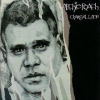
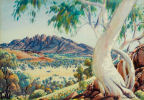 The history of Australia as a nation has been brutal to the humans who lived here first, to the animals and birds, and brutal to the landscape. Australia needs a day to stop and reflect on what has been done, where we are now and where we are going. We cannot fix the problem by continuing to do the same thing that caused it. Current discussion about Australia Day focuses on the way colonisation affected and continues to affect the aboriginal population. In addition to the injustices and atrocities, Australian Aborigines have been, and continue to be, overwhelmed by sheer numbers from elsewhere. The non-Aboriginal population born here is now being overwhelmed in the same way. The fast growing population as a whole has ongoing devastating environmental impacts on this land. It has social impacts too, as it enriches a very few members of the growth lobby, while the rest pay for population growth.
The history of Australia as a nation has been brutal to the humans who lived here first, to the animals and birds, and brutal to the landscape. Australia needs a day to stop and reflect on what has been done, where we are now and where we are going. We cannot fix the problem by continuing to do the same thing that caused it. Current discussion about Australia Day focuses on the way colonisation affected and continues to affect the aboriginal population. In addition to the injustices and atrocities, Australian Aborigines have been, and continue to be, overwhelmed by sheer numbers from elsewhere. The non-Aboriginal population born here is now being overwhelmed in the same way. The fast growing population as a whole has ongoing devastating environmental impacts on this land. It has social impacts too, as it enriches a very few members of the growth lobby, while the rest pay for population growth.
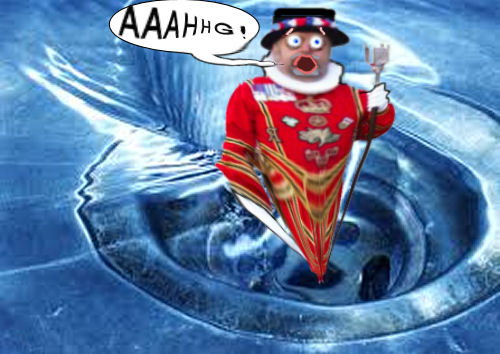
 The Honourable Jeff Kennett AC, former Victorian Liberal Premier, promotes multiculturalism. In particular in public, “Multiculturalism is good for jobs.” But he had never revealed other reasons. Speaking to a well-heeled audience of Melbourne’s planning elite - another group keen on high immigration for the increased housing demand - he said more. He disclosed that he has a low opinion of Australian workers, and so prefers migrants instead. They work harder, for less; so they are better for businesses.
The Honourable Jeff Kennett AC, former Victorian Liberal Premier, promotes multiculturalism. In particular in public, “Multiculturalism is good for jobs.” But he had never revealed other reasons. Speaking to a well-heeled audience of Melbourne’s planning elite - another group keen on high immigration for the increased housing demand - he said more. He disclosed that he has a low opinion of Australian workers, and so prefers migrants instead. They work harder, for less; so they are better for businesses. 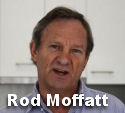
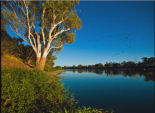 On
On 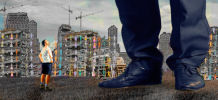 Update: See note [1] on where candobetter.net's values differ from those apparent on Party for Freedom site. John Ajaka, the NSW Minister for Multiculturalism's
Update: See note [1] on where candobetter.net's values differ from those apparent on Party for Freedom site. John Ajaka, the NSW Minister for Multiculturalism's 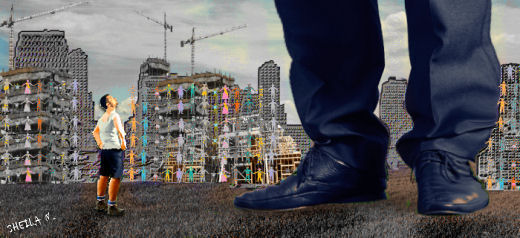 The multicultural cloak has been given unmerited authority and power by vested interest and protection from political figures. Nick Folkes is a working man attempting to lead protests against mass dispossession of Australian citizens by virtually unregulated foreign property buyers who are outbidding Australians and contributing to an overpriced Australian housing market.
The multicultural cloak has been given unmerited authority and power by vested interest and protection from political figures. Nick Folkes is a working man attempting to lead protests against mass dispossession of Australian citizens by virtually unregulated foreign property buyers who are outbidding Australians and contributing to an overpriced Australian housing market. 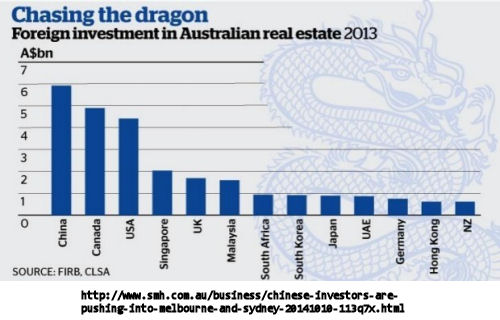
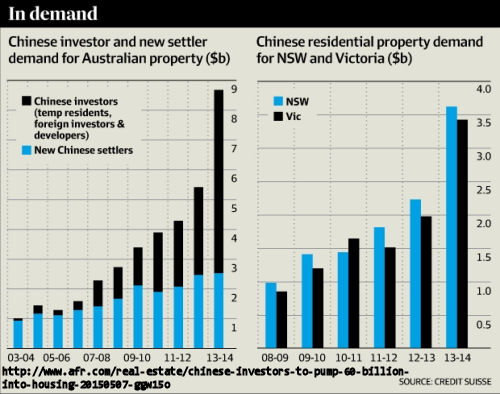
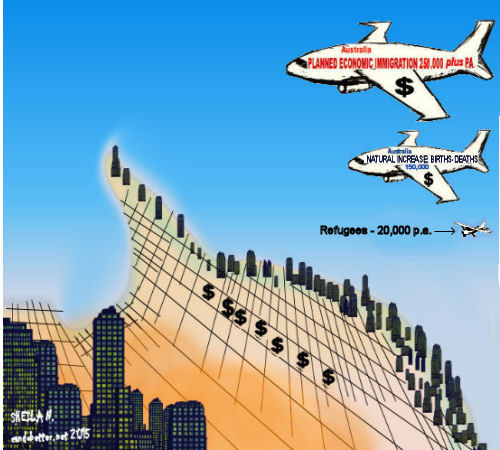
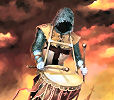 (This article also looks at related population, immigration and democracy issues in the West.) A film, Innocence of Muslims has been released of which parts available on you-tube portray the founder of Islam in a bad personal and political light, to say the least. A strong theme depicts Muslims as aggressively anti-Christian. Apparently largely as a response to this film, there have been widespread riots by Muslims against foreign embassies, particularly US embassies, including riots in Sydney on 15 September 2012, with police injured. Meanwhile warships from more than 25 countries, including the United States, Britain, France, Saudi Arabia and the UAE, are together launching a military exercise in the Straits of Hormuz, in response to threats to close it off. There is plenty of reason for Muslims to be angry with and frightened by the West apart from that film. And maybe Westerners should hold their own governments to greater account if we are to avoid World War Three.
(This article also looks at related population, immigration and democracy issues in the West.) A film, Innocence of Muslims has been released of which parts available on you-tube portray the founder of Islam in a bad personal and political light, to say the least. A strong theme depicts Muslims as aggressively anti-Christian. Apparently largely as a response to this film, there have been widespread riots by Muslims against foreign embassies, particularly US embassies, including riots in Sydney on 15 September 2012, with police injured. Meanwhile warships from more than 25 countries, including the United States, Britain, France, Saudi Arabia and the UAE, are together launching a military exercise in the Straits of Hormuz, in response to threats to close it off. There is plenty of reason for Muslims to be angry with and frightened by the West apart from that film. And maybe Westerners should hold their own governments to greater account if we are to avoid World War Three.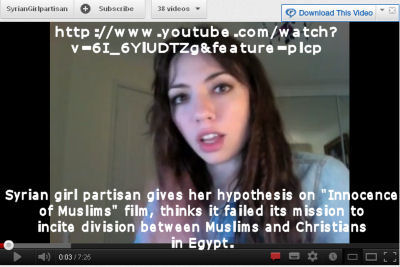

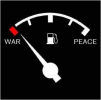 The co-founder of the medical charity Doctors Without Borders, Jacques Beres, discovered some interesting information while treating Syrian rebels in the besieged city of Aleppo. He says the fighters aren’t focused on the fall of the Assad regime. Instead, they have their eyes on a different kind of prize – implementing Sharia Law throughout the country. Overpopulation, draconian monotheism, rising enforcement of Sharia laws, declining democracies, and religious intolerance is an awakening deep set powers and rebellion, and spreading the dis-ease of unrest. It fosters rebellion, hatred, suffering, division and persecution.
The co-founder of the medical charity Doctors Without Borders, Jacques Beres, discovered some interesting information while treating Syrian rebels in the besieged city of Aleppo. He says the fighters aren’t focused on the fall of the Assad regime. Instead, they have their eyes on a different kind of prize – implementing Sharia Law throughout the country. Overpopulation, draconian monotheism, rising enforcement of Sharia laws, declining democracies, and religious intolerance is an awakening deep set powers and rebellion, and spreading the dis-ease of unrest. It fosters rebellion, hatred, suffering, division and persecution. 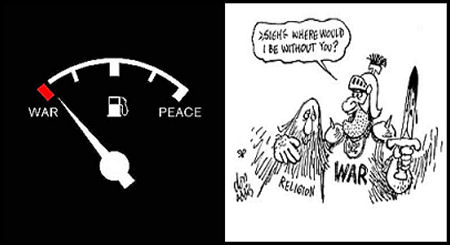
 Attention: This an urgent message to the entire country to assist in the search for and recovery of journalistic integrity, impartiality and independence in our state broadcaster.
Attention: This an urgent message to the entire country to assist in the search for and recovery of journalistic integrity, impartiality and independence in our state broadcaster.


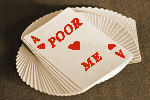 Question. How do you create a culture of dependence? Answer: Add a strong dose of state promoted multiculturalism to a welfare state and presto, you get identity politics where group identification and cultivated victimhood combine to discourage individual responsibility. It is on Canada Day that we celebrate this buck-passing as the distinctive feature of Canadianism and seize the opportunity to sneer at Americans for making a cult of individualism and self-reliance which we equate with selfishness. Americans have rights, but we have entitlements. I am proud to live in the best country in the world. I know it is because that is what our state broadcaster told us.
Question. How do you create a culture of dependence? Answer: Add a strong dose of state promoted multiculturalism to a welfare state and presto, you get identity politics where group identification and cultivated victimhood combine to discourage individual responsibility. It is on Canada Day that we celebrate this buck-passing as the distinctive feature of Canadianism and seize the opportunity to sneer at Americans for making a cult of individualism and self-reliance which we equate with selfishness. Americans have rights, but we have entitlements. I am proud to live in the best country in the world. I know it is because that is what our state broadcaster told us.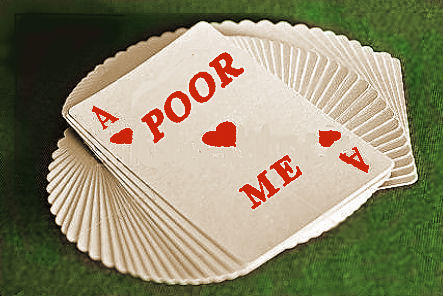
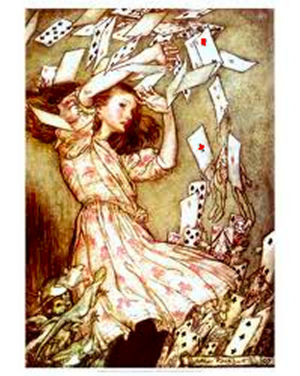
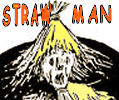 Australians have found it very hard to protest against high immigration because of constant subtle messages from government and media implying that they had no right to object. They have been given the idea that there was nothing special about them that gave them the right to object. They only lived here. Although only Australians might vote in governments, the importance of this was subsumed to a cult of plutocracy, where governments prioritised commercial and corporate demands over the wishes of the actual electorate. The mainstream press (the ABC, the Murdoch Press, the Fairfax Press) promoted a cult of elite authoritarianism and the official alternative press never really encouraged questioning of this process on issues of real dissent. And the elite authorities all endorsed 'multiculturalism'. One has only to glance at the
Australians have found it very hard to protest against high immigration because of constant subtle messages from government and media implying that they had no right to object. They have been given the idea that there was nothing special about them that gave them the right to object. They only lived here. Although only Australians might vote in governments, the importance of this was subsumed to a cult of plutocracy, where governments prioritised commercial and corporate demands over the wishes of the actual electorate. The mainstream press (the ABC, the Murdoch Press, the Fairfax Press) promoted a cult of elite authoritarianism and the official alternative press never really encouraged questioning of this process on issues of real dissent. And the elite authorities all endorsed 'multiculturalism'. One has only to glance at the 
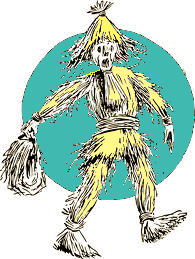
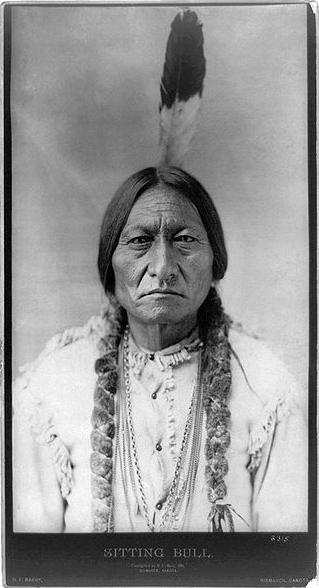
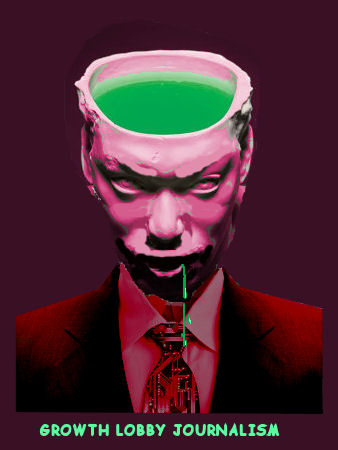
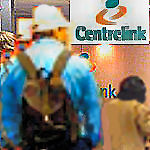
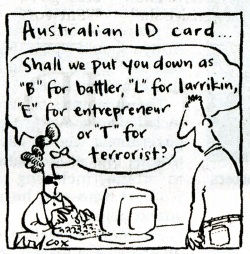
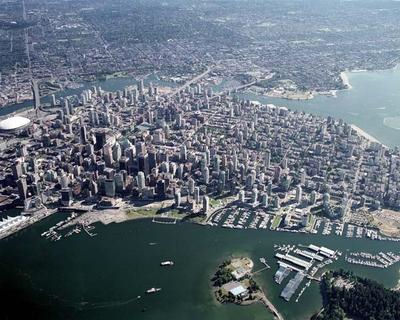
 Photo: Uknown homeless female Canadian citizen & Vancouver street resident.
Photo: Uknown homeless female Canadian citizen & Vancouver street resident.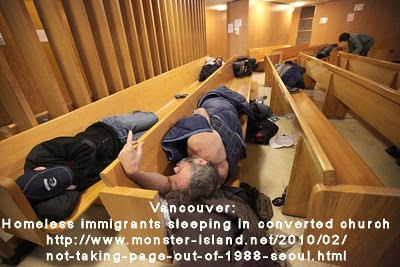 'For many in this city that prides itself on its social contract,
'For many in this city that prides itself on its social contract, 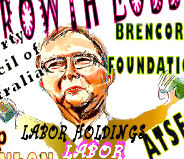 A few years ago I heard about the Australian Multicultural Foundation in the context of donations by the Scanlon Foundation (formerly the Brencorp Foundation) to the Australian Academy of Technical Sciences and Engineering (ATSE) for the production of the "Scanlon Report on "The technological implications of Australia at 30 million in 2030". The AMF was also the recipient of Scanlon Foundation funding together with the Institute of Global Movements, at Monash University, run by Professor Nieuwenhuysen, who used to be with the Bureau of Immigration. What initially got my attention was the enormous amount of money and publicity the AMF and the IGF attracted. Then what absolutely arrested my attention was the membership of the Australian Multicultural Foundation - made up largely of prime ministers and almost-prime ministers of every political complexion. I then became interested in the history of the AMF and decided to try to track down its origins and early associations. This is an interim report.
A few years ago I heard about the Australian Multicultural Foundation in the context of donations by the Scanlon Foundation (formerly the Brencorp Foundation) to the Australian Academy of Technical Sciences and Engineering (ATSE) for the production of the "Scanlon Report on "The technological implications of Australia at 30 million in 2030". The AMF was also the recipient of Scanlon Foundation funding together with the Institute of Global Movements, at Monash University, run by Professor Nieuwenhuysen, who used to be with the Bureau of Immigration. What initially got my attention was the enormous amount of money and publicity the AMF and the IGF attracted. Then what absolutely arrested my attention was the membership of the Australian Multicultural Foundation - made up largely of prime ministers and almost-prime ministers of every political complexion. I then became interested in the history of the AMF and decided to try to track down its origins and early associations. This is an interim report.
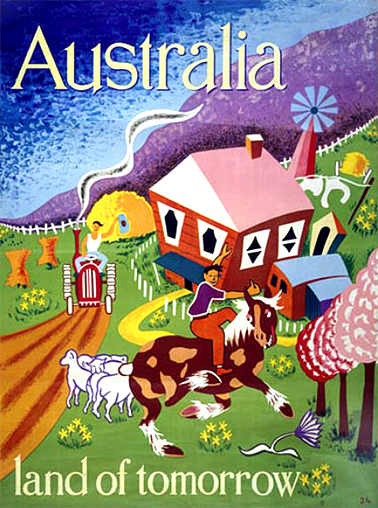
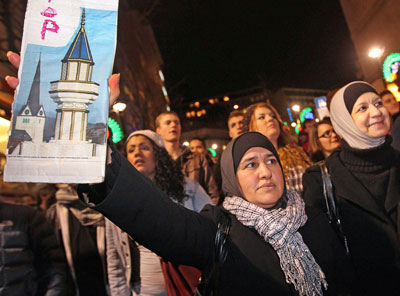
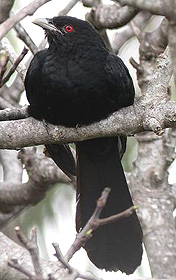
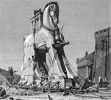 Poaching skilled workers and removing political activists; dividing and conquering; restructuring communities to remove democratic organisation, multiculturalism as a cover for big business links with politicians
Poaching skilled workers and removing political activists; dividing and conquering; restructuring communities to remove democratic organisation, multiculturalism as a cover for big business links with politicians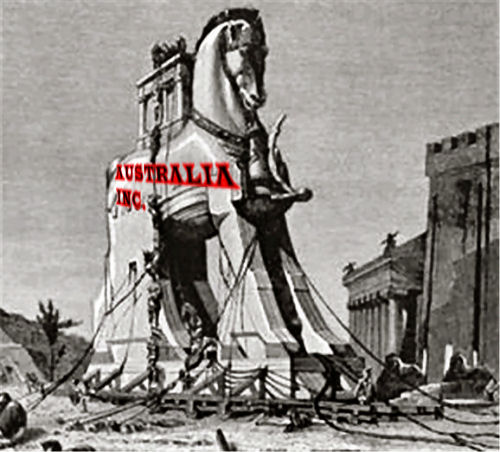

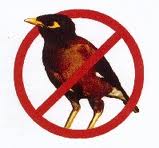
 Submitted by Tim Murray, Director Immigration Watch Canada
Submitted by Tim Murray, Director Immigration Watch Canada  Being half-Icelandic in background I'd like to believe in intrinsic Norse wisdom but …
Being half-Icelandic in background I'd like to believe in intrinsic Norse wisdom but …
Recent comments